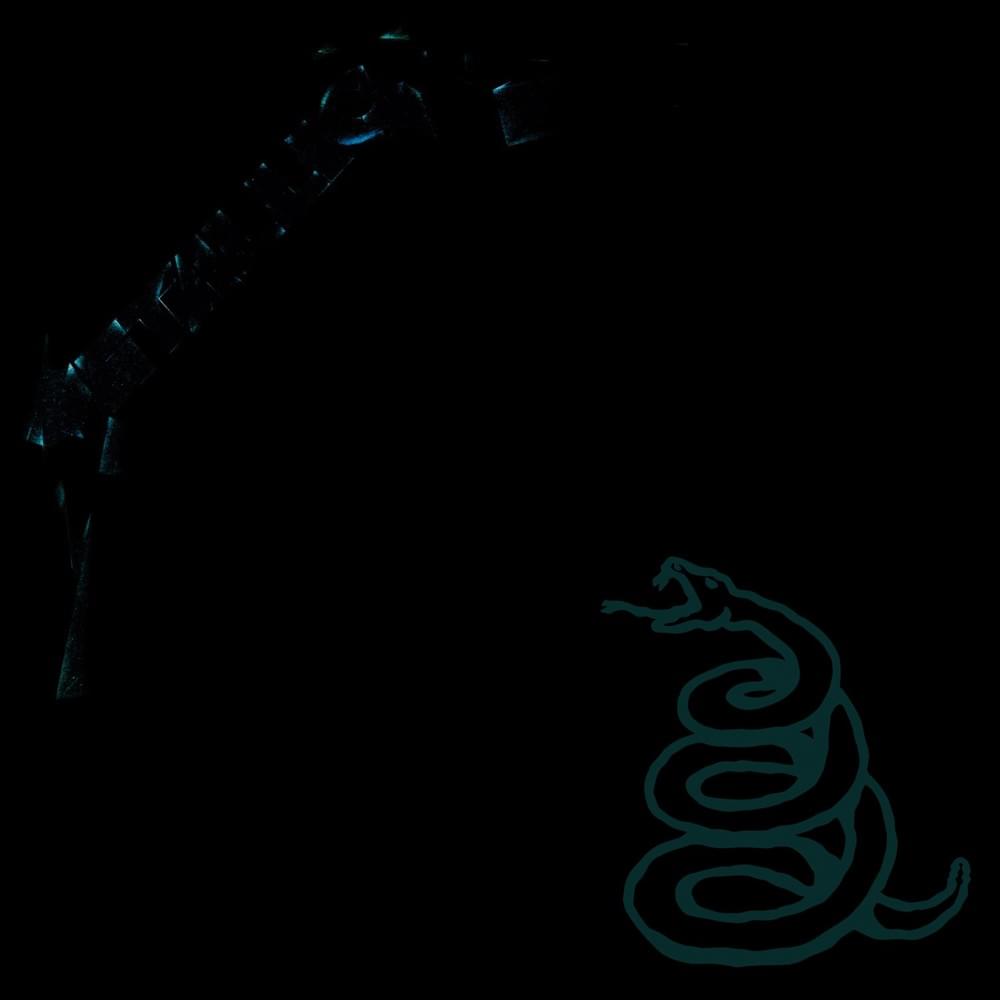HEAVY MUSIC HISTORY: Metallica – Metallica
The Black Album is a signpost of music history. On this, its 30th anniversary, outlets from both within and outside the metal community will inevitably be smothering coverage all over the record for how it forever changed the trajectory of metal and heavy music. How it went 16 times platinum and is one of the best selling metal albums of all time. How it spent 550 weeks on the Billboard 200, a feat only held by a chosen few in history. And how its recording solidified the path for METALLICA to become the biggest metal band in the world; a band that has now become irrevocably and forever tied to the genre who’s very name is stitched into its greatest torch carrier. But this album is so, so much more than even all of that.
This album changed the culture.
METALLICA’S And Justice For All was a record born out of trauma; of a band simultaneously pushing themselves to the brink of their capabilities while eschewing the contributions and playing of their newest addition. After the song writing mastery shown in 1986’s Master of Puppets, the still young band were shaken to their core by the death of bassist and key songwriter Cliff Burton. The pain was channelled into crafting songs even more complex and progressive, with new bassist Jason Newstead undergoing behind the scenes hazing and famously having his bass sound almost entirely absent from the mix of Justice. But what emerged was a record that proved the band could carry on and thrash even harder while channelling their rage outward in entirely new dimensions. Nuclear winter, the darkest horrors of war, and critiques of the American justice system were all backed with unrelenting riffs and a pace unseen since Kill ‘Em All. Tempos changed on a dime and melodies stretched into uncharted territory. The band gave all they had to give as players and as people, and final tracks To Live Is To Die and Dyers Eve represent the band, consciously or not, breathing their last breath and saying final goodbyes to their youth, their best friend, and their salad days. The record finishes with as much speed, content, and sorrow as they band could muster in the whole of their careers.
Which is why by the time the decade turned and the 90s began, with so much flux and upheaval in their own lives, it truly was time for METALLICA to reinvent themselves. Bringing former MÖTLEY CRÜE producer Bob Rock into the fold was a clear indication that this new record would be a radical departure from their past. What occurred during the recording sessions during the making of their self titled record is well documented through various media, but needless to say, what emerged could only be described as the distillation of everything that made METALLICA great, but crystallized into pure pop format magic. What once was cluttered became clean. What was long became short. What was complicated became simple. And what was once niche would soon become popular like never before.
The band was pushed by Rock to not be satisfied until every single note was perfect, and tempers flared. Divorces, new relationships, and childhood trauma all found their way to the surface of both the music and lyrics. This was going to be an album for the people. For everyone to understand, and in order to capture the attention, the essence of the band had to be crystallized. And diamonds are exactly what emerged when the pressure and fire of the recording sessions had finally subsided.
Enter Sandman: the most recognizable metal riff ever, and perhaps the most recognizable metal song on a global scale. Sad But True: the heaviest METALLICA riff ever written. Nothing Else Matters: a ballad covered and sung by top 40 artists to this day, and a love song that has transcended time. This list goes on and on. The songs the band created for The Black Album are simply unparalleled and undeniable. Steering into slower tempos and brand new instruments and, most importantly, a huge amount of pop sensibility, METALLICA became a sensation. For die hard fans, it was a shock to the system. It was, for many, a “selling out” moment. But for literally thousands upon thousands of others, this was the record that changed their lives. This was the record that made them sit up and pay attention; the record that made them finally listen to what heavy metal had to say in the global conversation. And from there, the record opened their ears and the doorway to heavy metal fandom for young and old across the world.
What is even more remarkable is how METALLICA still managed to ease fans into their transition, if they took the time to really listen. Holier Than Thou, Through The Never, and The Struggle Within have all the best elements from previous records condensed into three and four minute ragers with blistering solos and snarling lyrics. They even harken back to the short, punchy tracks of Kill Em All. But make no mistake, it’s the mid tempo tracks that were the world beaters and chart dominators. The tracks listed above of course are the iconic, put them in the annals of history for all time kind of tracks. But The Unforgiven, with its western inspiration and instrumentation and reverse heavy verse and soft chorus, and The God That Failed, with its sinister stomp and sarcastic anger both are deeply personal and memorable channellings of a childhood long since destroyed. Of course Wherever I May Roam is forever the metal road anthem, with it’s wonderful use of electric sitar in its opening, and Don’t Tread On Me may be the most underrated METALLICA song of all time.
None of this could ever have been said without the performances from the band members and production of Bob Rock. The production of this record changed the game in metal, with the drum sound being still among the best sounding on any metal record, bar none. Jason Newsted finally got his due with the bass being an integral part of establishing the monstrous low end that defines the record’s sound. The guitars are crisp and sharp as razors on every song, and special attention needs to be given to James Hetfield‘s voice. Due in part to the clarity of the mix, his voice sounds better than it ever has, and his attitude and vocal performance is at its peak on this record. This record also marks the beginning of Hetfield really beginning to explore his limits and depth as a singer, and it also marks the beginning of what is largely seen as his best run of records as a melodic vocalist, being The Black Album, Load, and Reload. But on The Black Album, his trademark bite is elevated to its apex, and his delivery on legendary lines like “Exit light, enter night” and “Rover, wanderer, nomad, vagabond, call me what you will” still elicits goose bumps no matter how many times it gets played.
And about that aforementioned culture change. It’s the last piece of the puzzle that makes up the monumental legacy of this record. Following its release, Enter Sandman was played across every rock radio station and gained incredibly heavy rotation on MTV, as did Nothing Else Matters. These two songs alone not only created a legion of new fans to METALLICA and metal, they began to shape perception of heavy music culture. The songs made it cool to be a metalhead, and the genre gained mainstream exposure unseen since the previous decade, only this time it was a whole new brand of metal. The darkness became cool, and lit the fuse, along with the burgeoning grunge movement, of alternative youth culture of the 90s that went on to define an entire generation. Rock and metal was, much in part thanks to those songs and the airplay they received, the predominant tone setter and trend setting music for youth throughout the early 90s and even into the middle of the decade. The musical landscape would have not been the same had The Black Album never been released when it was.
The Black Album is responsible for birthing more metal fans and inspiring more metal bands than perhaps any record before or since. It set a tone for how metal could still retain its aggression and yet broaden its pop and hook first sensibility and appeal to listeners who had not heard a metal song in their life. It let loose a sound that bands would chase after for years, and would propel METALLICA to the top of the charts and to the front of public consciousness, not to mention bring them venues and audiences unheard of for a metal band. But perhaps the album should be remembered most for showing the world that the point of view metalheads bring to the table is valid and worthy; that now, on the biggest of stages, the world could finally catchy a glimpse of what the metal community finds so powerful and life affirming in its music of choice. METALLICA, with this record, showed the world the beauty within the noise and chaos. And now, thanks to them, the world could no longer look away.

Metallica (The Black Album) was originally released August 12th via Elektra Records.
Like METALLICA on Facebook.

